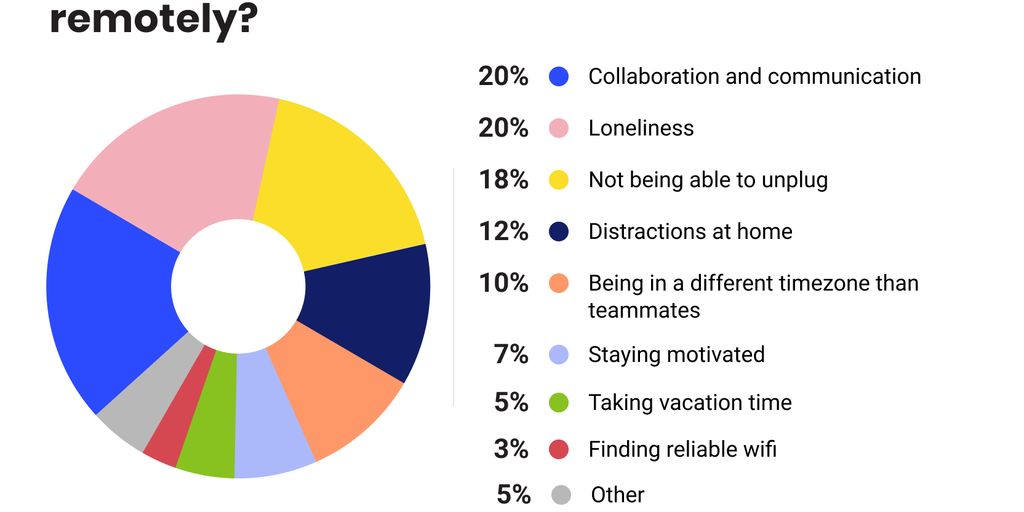
In the whirlwind of parenting advice, one approach stands out like a beacon of light amidst the chaos: Positive Parenting. Picture this: a parenting style that focuses on fostering strong parent-child connections, promoting positive behaviors, and nurturing children’s self-esteem. Sounds too good to be true, right? Well, hold onto your hats, because positive parenting is not only the way to go; it’s a game-changer for families everywhere.
Key Takeaways
- Positive parenting emphasizes the importance of strong parent-child relationships built on love, empathy, and understanding.
- Encouragement and praise are key components in promoting positive behaviors and fostering a child’s self-confidence.
- Creating a safe and loving environment is crucial for the emotional and psychological well-being of children.
- Positive parenting helps children develop emotional intelligence by recognizing and naming their emotions, teaching emotional regulation, and encouraging empathy.
- By embracing positive parenting, both parents and children can experience reduced stress, stronger family bonds, and a more harmonious home environment.
Understanding the Principles of Positive Parenting
Core Values and Beliefs
Positive parenting is a transformative approach that prioritizes nurturing a child’s well-being through empathy and communication. This method fosters a strong parent-child bond and promotes emotional intelligence, resilience, and problem-solving skills in children. Positive parenting emphasizes meaningful interactions that go beyond simple affirmations, focusing on clear communication and positive reinforcement to address challenging behaviors.
Benefits for Children and Parents
The benefits of positive parenting extend to both children and parents. For children, it promotes emotional regulation, self-esteem, and essential life skills. Parents, on the other hand, experience a more harmonious and supportive family environment. This approach provides tools and strategies to guide children towards positive behavior, creating a nurturing atmosphere where children feel safe and supported.
Common Misconceptions
There are several misconceptions about positive parenting. Some believe it is a lenient approach that lacks discipline. However, positive parenting involves setting clear boundaries with love and understanding. It is not about being permissive but about teaching children through empathy and constructive guidance. This method encourages children to learn from their mistakes and develop problem-solving skills, rather than relying on fear-based approaches.
Building Strong Parent-Child Relationships
Building a strong parent-child relationship is essential for fostering a loving and supportive family environment. Effective communication techniques are crucial in achieving this goal. Parents should practice active listening, which involves giving full attention to their child and acknowledging their feelings. This helps in creating a safe space where children feel heard and valued.
Effective Communication Techniques
- Practice active listening by giving your full attention to your child.
- Use positive language and reinforcement to encourage good behavior.
- Be clear and consistent with your expectations and rules.
The Role of Empathy and Understanding
Empathy and understanding play a significant role in building a strong parent-child bond. Parents should strive to understand their child’s perspective and validate their emotions. This not only strengthens the bond but also teaches children to be empathetic towards others.
Truly connecting with your child during stressful times is a powerful tool that requires skill and patience. It’s about improving and creating a healthy long-term relationship.
Creating a Safe and Loving Environment
Creating a safe and loving environment is fundamental for a strong parent-child relationship. Parents should ensure that their home is a place where children feel secure and loved. This involves setting boundaries with love and fostering cooperation through mutual respect.
- Establish a routine that provides stability and predictability.
- Encourage open communication and express love and affection regularly.
- Create a nurturing home environment that promotes emotional well-being.
Promoting Positive Behaviors in Children
Encouragement and Praise
Positive reinforcement is a powerful tool in shaping children’s behavior. By recognizing and praising your child’s efforts and good behavior, you can enhance their self-esteem and motivation. This kind of positive attention can be a powerful way to guide them towards desirable actions. Remember to be specific in your praise, highlighting exactly what they did well.
Setting Boundaries with Love
Establishing clear and consistent boundaries is essential for children to understand expectations. When setting these boundaries, it’s important to do so with love and empathy. Explain the reasons behind the rules and ensure that consequences are fair and consistent. This approach helps children feel secure and understand the importance of responsibility and accountability.
Handling Misbehavior Constructively
When misbehavior occurs, it’s crucial to address it constructively. Instead of resorting to criticism, focus on teaching and guiding your child towards better choices. Use natural consequences to help them understand the impact of their actions. Additionally, model the behavior you wish to see in your child, as they often learn by observing their parents.
By emphasizing praise, rewards, and consistent consequences, parents can effectively reinforce positive behaviors while reducing undesirable ones.
Fostering Emotional Intelligence Through Positive Parenting
Recognizing and Naming Emotions
Helping children recognize and name their emotions is a fundamental step in fostering emotional intelligence. By openly discussing feelings, parents can model healthy emotional expression and regulation. This practice not only aids in emotional awareness but also strengthens the parent-child bond.
Teaching Emotional Regulation
Teaching children how to manage their emotions effectively is crucial. Parents can demonstrate healthy emotional expression and regulation by openly discussing their own feelings and how they manage them. This approach encourages children to develop their own strategies for emotional regulation, promoting resilience and self-confidence.
Encouraging Empathy and Compassion
Empathy and compassion are essential components of emotional intelligence. Parents can nurture these qualities by showing genuine care and understanding towards their children’s feelings. By demonstrating empathy, active listening, and effective communication, parents can help their children develop strong interpersonal skills.
Through encouragement and empowerment, parents build a strong foundation for their child’s growth, resilience, and self-confidence, preparing them to navigate life’s challenges with courage and determination.
Empowering Children to Develop Self-Confidence
Positive parenting empowers children to explore their world with confidence, fostering independence and self-esteem. By providing guidance and support rather than control, parents nurture a child’s natural curiosity and problem-solving skills. This approach allows children to learn through experience, making mistakes, and discovering their strengths. Positive parenting emphasizes praising effort and resilience, helping children develop a growth mindset and a positive self-image. Through encouragement and empowerment, parents build a strong foundation for their child’s growth, resilience, and self-confidence, preparing them to navigate life’s challenges with courage and determination.
The Impact of Positive Parenting on Family Dynamics
Strengthening Family Bonds
Positive parenting fosters a nurturing environment where family members feel valued and respected. This approach encourages open communication and mutual respect, which strengthens the parent-child bond. Families practicing positive parenting often experience deeper connections and a sense of unity.
Reducing Stress and Conflict
By focusing on empathy and clear communication, positive parenting helps to address challenging behaviors constructively. This reduces stress and conflict within the family, creating a more harmonious home environment. Positive parenting is an approach that focuses on building nurturing, trusting parent-child relationships through listening and communication.
Creating a Harmonious Home Environment
A home guided by positive parenting principles is one where kindness, empathy, and compassion are modeled daily. This not only promotes emotional regulation and essential life skills in children but also contributes to a supportive and loving family atmosphere. The enduring impact of positive parenting can be seen in reduced instances of aggression and increased emotional intelligence in children as they mature into adulthood.
Positive parenting creates a ripple effect that extends far beyond childhood, shaping the values and behaviors of future generations. By modeling kindness, empathy, and compassion, parents instill these qualities in their children, leading to a more compassionate and understanding society.
Overcoming Challenges in Positive Parenting

Positive parenting is a rewarding journey, but it comes with its own set of challenges. Managing parental stress is crucial, as it can impact your ability to practice positive parenting consistently. Here are some strategies to help you navigate these challenges effectively:
Dealing with External Pressures
Parents often face external pressures from society, family, and even friends. It’s important to establish clear expectations and communicate openly and honestly with those around you. Remember, your primary goal is to foster a healthy and supportive environment for your child.
Staying Consistent and Patient
Consistency and patience are key components of positive parenting. Practice patience and set realistic goals for both yourself and your child. Understand that progress takes time, and it’s okay to have setbacks. The important thing is to stay committed to your positive parenting principles.
Seeking Support and Resources
Don’t hesitate to seek support when needed. Whether it’s joining a parenting group, consulting a professional, or simply talking to a friend, having a support system can make a significant difference. Take care of yourself and practice empathy towards your own needs as well.
Positive parenting isn’t about perfection; it’s about improving and creating a healthy long-term relationship with your child.
Conclusion
In the whirlwind of parenting advice, positive parenting stands out as a beacon of hope and effectiveness. By focusing on love, empathy, and understanding, this approach not only nurtures happy and confident children but also transforms the parenting experience into a more fulfilling and joyful journey. Positive parenting empowers children to explore their world with confidence, fostering independence and self-esteem. It encourages parents to build strong, supportive relationships with their children, promoting resilience and a growth mindset. As we embrace positive parenting, we create a nurturing environment where both children and parents can thrive. So, whether you’re a seasoned parent or new to the journey, consider the profound impact of positive parenting. Your children, your family dynamic, and your own sense of fulfillment will thank you for it. Here’s to raising happy, confident kids and building a family rooted in love and positivity.
Frequently Asked Questions
What is positive parenting?
Positive parenting is an approach that focuses on fostering a strong parent-child connection, promoting positive behaviors, and nurturing a child’s self-esteem through love, empathy, and understanding.
How does positive parenting benefit children?
Positive parenting helps children develop confidence, emotional intelligence, and a growth mindset. It encourages independence, resilience, and a positive self-image.
Can positive parenting reduce family stress and conflict?
Yes, positive parenting can reduce stress and conflict within the family by creating a harmonious home environment and strengthening family bonds.
What are some effective communication techniques in positive parenting?
Effective communication techniques include active listening, expressing empathy, and using positive reinforcement to encourage desired behaviors.
How can I handle misbehavior constructively?
Handling misbehavior constructively involves setting clear boundaries with love, understanding the underlying reasons for the behavior, and using positive discipline strategies rather than punishment.
Is it difficult to practice positive parenting consistently?
While it can be challenging to stay consistent, especially with external pressures, seeking support and resources can help parents maintain a positive parenting approach.






